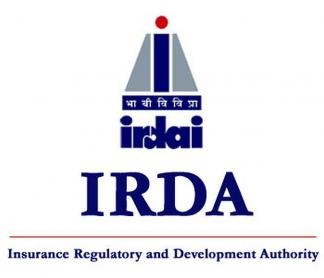Indian general insurers, which will be generating a premium of over three lakh crore rupees in Fy 25, in their detailed representation to the IRDAI, explained that the proposed regulations are reducing choice for the insurers, reducing reinsurance capacity for the Indian market, preventing discovery of best terms and even dis- incentivising the cross border reinsurers (CBRs) to invest in India
Mumbai/Hyderabad: With Apr 1 renewals fast approaching, Indian insurance regulator IRDAI has rejected the fervent appeals made by cross border reinsurers(CBRs), Indian general insurance industry and insurance brokers to review the implementation its new contentious CBR (cross border reinsurance) regulations from Apr 1.
In FY 25, over Rs 90,000 core of reinsurance placements have been done by the Indian general insurance industry by taking on board Indian reinsurer, GIC Re, 12 foreign reinsurance branches (FRBs) set up by large global reinsurers and around 300 CBRs, who are registered with the IRDAI.
However, the new IRDAI regulations for CBRs from Apr 1 require Indian cedents(general insurers) to collect collateral for reinsurance placements, either through irrevocable Letters of Credit (LoCs) or by withholding premiums/funds, to enhance financial security and stability in the reinsurance sector.
The collateral requirement for CBRs serves a dual purpose: ensuring the financial security of Indian cedants and safeguarding their exposure to potential payment defaults by CBRs, said IRDAI.
The guidelines stipulate that collateral must fully cover outstanding claims liabilities, which represent known claims yet to be settled.
For highly rated CBRs (A- and above from S&P), the minimum collateral required will be 80 per cent of the total liabilities and reserves, while for lower-rated ones (below A-), it will be 100 per cent.
The insurance company will release this collateral once all the CBR’s liabilities under the reinsurance contract are settled. If they believe some liabilities might continue, they can release part of the collateral after making adjustments.
The IRDAI said these new regulations are proactive steps to fortify the stability and reliability of the reinsurance sector, ensuring long-term benefits for all parties involved.
The new regulations are largely intended to push CBRs, who are currently underwriting almost Rs 25,000 crore of Indian business from overseas markets, to set up their operations either in India or in the GIFT -IFSC, India’s sole International Financial Centre (IFSC) in Gujarat, that is regulated by a unified regulator International Financial Services Centres Authority(IFSCA).
In order of preference to underwrite Indian business, these new players in the GIFT -IFSC, with a host of advantages from capital and tax point of view ,have been given same status as FRBs.
Effectively, Indian general insurers can deal with reinsurers based at GIFT-IFSC right after GIC Re.
But, striking a discordant note over new regulations, a number of international reinsurers have said that they are not in favour of collateral requirements, given that they have been supporting the Indian market for years and have been paying claims in a timely manner.
Also, some of the large and complex risks such as Aviation, Energy and infrastructure development require an abundance of capacity and international reinsurers support but the proposed collateral requirements could drive some reinsurance capacity away from the Indian market, leaving these large and complex risks to reside within a small group of reinsurers or without sufficient reinsurance support, argued some of global reinsurers.
33% of the overall capacity (premium) in Indian market is still provided by CBRs, said Laurent Rousseau, CEO of Europe, IMEA and Global Capital Solutions, Guy Carpenter, the reinsurance arm of Marsh, the largest re/insurance broker in the world.

Laurent Rousseau, CEO of Europe, India, Middle East and Africa and Global Capital Solutions, Guy Carpenter
“CBRs play a critical role particularly in specialty lines (e.g. Terrorism, Offshore/Onshore Energy, large Aviation programs, Marine Hull, Hydro projects, Arts/Specie Insurance, Cyber and M&A). The issuance of collaterals or premium deposit reserves for CBRs may result into increased cost of reinsurance, concentration of risks among a limited pool of reinsurers in the country and potentially unplaced risks, if Indian capacity is insufficient or on specialized risks on which limited/ no capacity exists in the Indian market,’’ cautioned Rousseau.
Taking a similar stand, the Indian general insurers, that will be generating a premium of over three lakh crore rupees in Fy 25, in their detailed representation to the IRDAI, explained that the proposed regulations are reducing choice for the insurers, reducing reinsurance capacity for the Indian market, preventing discovery of best terms and even dis- incentivizing the CBRs to invest in India.
For significant economic benefits for the country, policyholders and industry would need free global flow of risk through open and competitive reinsurance markets, they pointed out.
“GIC Re and FRBs generally do not have appetite or have very limited appetite to write certain classes of business like Energy, Aviation, Cyber, Hydro Projects, and Marine Hull etc. The direct insurers get limited capacity in domestic market and they have to depend on the CBRs to place the risk,” the general insurance industry stressed.
Further, they have underscored that reinsurance trade barriers and market access issues will only result in reducing competition leading to reduced customer choice, higher reinsurance costs and less capacity over the long-term horizon. This will be detrimental to the growth of the insurance sector in India.
“Decreased reinsurance capacity may also force direct insurers to retain higher level of risk on their balance sheets, which could affect the ability to discharge policyholder obligations, thereby affecting expeditious claim settlement,’’ pointed out the general insurers.
N Ramaswamy, CMD, GIC Re, has staunchly defended the new CBR regulations.

N Ramaswamy, CMD, GIC Re
“The effort from the IRDAI is to create a more conducive environment for doing business as well as to attract more players to set up shop in India. The Indian market is in a stage of big growth and it will need huge capital resources from investors as well as large capacities from reinsurers. There is a need for more commitment from all stakeholders,’’ said Ramaswamy.
According to Ramaswamy, GIC Re and other domestic reinsurers are likely to benefit from increased opportunities, while serious international players may consider setting up operations in India.
“This development aligns with the government’s “Make in India” initiative and could further strengthen the Indian reinsurance market,’’ he said.
Meanwhile, couple of overseas reinsurers, in the last two months, have started their operations in the GIFT-IFSC, after receiving licenses from the IFSCA.
After Allianz Partners, an entity of multinational Allianz, Berkley Re, Peak Re are now underwriting Indian business from the Gift-IFSC.
Doha Insurance Group has also set up its operations in the special financial economic zone this week.
More overseas reinsurers from Middle East and African markets have also started their processes to set up their operations in the GIFT-IFSC, said sources.
“India is a core market for Peak Re and is aligned with the vision of the company to drive positive, sustainable change by modernising reinsurance and supporting middle class communities across Asia and beyond. Establishing a IFSCA Branch reinforces our unwavering commitment to the India market and underscores our strategic focus on meeting local needs and deepening our engagement with the local community,” said Peak Re .
Sudhir Salian, Managing Director, Head of India at Peak Re, has been designated to oversee the development of the Peak Reinsurance Company Limited IFSCA Branch.

